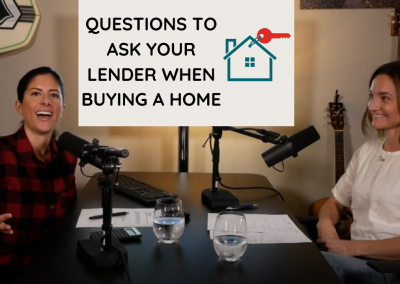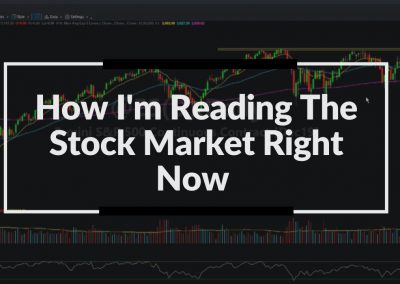Lead generation sounds like the perfect situation for your business, whether you’re a real estate agent, an investor, a house flipper, a contractor, or any other professional job that deals in this niche.
Building a website for yourself and your business is a great way to establish that you are a legitimate entity and project the ideals and characteristics about you and your service to the audience you’re seeking to engage.
We see so many people who have no clue what to do with their websites, filling them with all manner of personal information (no thanks), unhelpful links (stop leading your customers away from your site), or a noticeable lack of direction.
When you don’t know how to craft a website that is visually appealing, you’ll have potential customers coming to your site and then leaving a few seconds later: what web analytics experts call a high bounce rate.
Let’s say you buy homes to invest in them. Your target audience is motivated sellers who are seeking a partner to make a transaction. You give them money, often in cash. They give you their home, and everybody’s happy.
But you can’t just build a website, slap a title on it, and expect every seller in your area to come flocking to your tiny corner of the Internet. Things don’t work that way.
There are some aspects on your website that will garner interest from the audience you seek. What we’re talking about here is optimizing your site for conversions. That is, filling it with the sort of information homeowners are looking for, so they feel comfortable and confident in selling you their home.
So what are these elements? Let’s go over the Big 7.
A professionally-designed website.
Constructing your site slowly with lines of HTML code was cool in 2000, but not so much in 2018. If your site looks like you put it together yourself, that tells prospective buyers that you’re either too cheap or too broke to hire a professional web designer to promote your business.
That’s a terrible first impression. Sites like WordPress make it easier to construct something yourself; but your job is buying homes, not building websites. Go to a freelance marketplace website like UpWork to find someone to take care of the task.
Professional photos of you.
Have you ever gone to a business website’s “About Us” page and seen clearly personal pictures for its staff? If you have pictures that make you look like you’re doing the real estate thing as a side business, nobody will believe in you. Go to Sears or a similar company and get a professional headshot made. It’s a great investment and you won’t have to worry about it again for a decade.
Get your business accredited by the Better Business Bureau and get its logo on your website.
That eases a lot of nerves that you’re a legitimate entity and not some random person trying to pull a fast one.
Put your contact information everywhere on the site.
A prospective buyer should be able to see your email address and phone number with their eyes closed after visiting your site for a minute or two. Put your contact info high up so it’s one of the first things visible, and put it on every subsequent page that a person might visit. Also, give people your real name, real business address, and real business phone number.
If you only refer to yourself as “Crazy Pete Buys Homes!” or your email address is your favorite rock band from college (spicegirlz#[email protected]), you either look like you’re hiding something or that you’re just playing around. Be transparent. It’s the very best thing you can do when you’re in a high-dollar market like real estate.
Testimonials.
When you have a great transaction, ask the seller if they would mind giving a testimonial about working with you. The very best are those recorded on video. They can be informally done, last 1-2 minutes, and feature the customer talking about dealing with you and the highlights of that process.
When you capture a video like this and embed it on your website, you are adding immeasurable weight to your brand. It’s hard to fake the sincerity of a satisfied customer, so always be gracious in asking for that one small thing whenever you’ve concluded buying a home from a seller.
Know your SEO.
There are both paid and free tools to use to track SEO terms online. Whichever you use, make sure you target what people are searching for in your area. But there’s a fine line between organic copywriting and keyword stuffing, and Google and other search engines can usually tell the difference.
If you aren’t the world’s greatest writer, consider hiring a freelance copywriter to take your information and your keywords and make your website sing. Make sure to include the names of your city, specific neighborhoods and subdivisions, and even well-known streets where you have done business in the past or are looking to buy houses.
Blog and Vlog about your business.
You’re in the market to make money, there’s no disputing that. However, the more people trust you, the better chance you have to earn their business. You can go a long way to earning that trust by offering them something for nothing, in your case useful information about buying and selling homes. Have your web designer set up a blog that you can update periodically – anywhere from once a week to once a month should do it.
Once again, if you’re not great with the Queen’s English, employ a freelance writer. You can spend 15-30 minutes per blog doing a “brain dump” with the writer where you extol your thoughts on a subject and let them turn it into a well-written 250-500 word piece to post on your site. If you do well in front of the camera, all the better.
You can record video blogs where you talk about certain neighborhoods or how-tos like hiring a professional home inspector before buying a property. Blogs and Vlogs are great opportunities for cross-promotion with other companies such as inspectors, contractors, and landscapers. The more backlinks you can build from your site to others in your niche, the more traffic you can expect.










